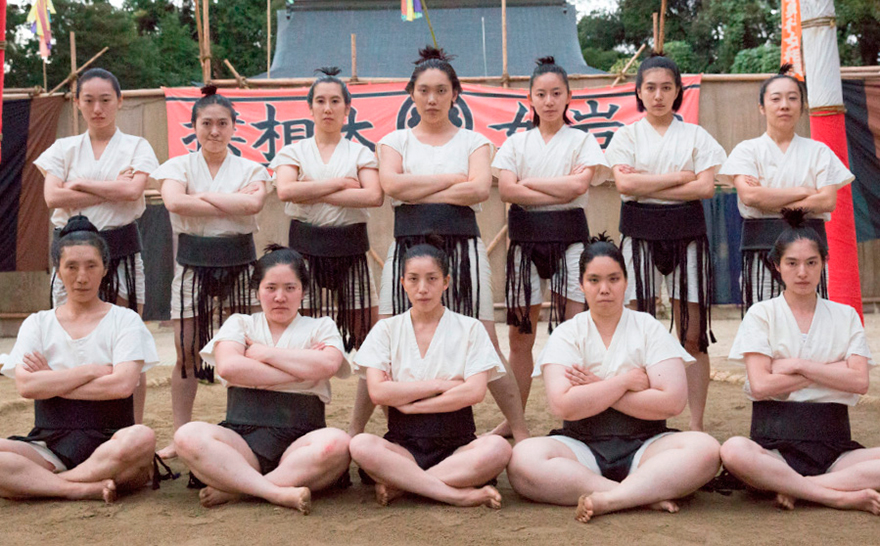Director Zeze Takahisa made waves with his 4-hour opus Heaven’s Story in 2010. Despite its running time, the independently produced movie took home the FIPRESCI Prize at the 61st Berlin International Film Festival among other praises & accolades at home and abroad. He has a completed shooting a new movie titled Kiku to Girochin – Onna Zumo to Anakisuto (lit. Kiku and Guillotine – a female sumo and an anarchist), the premise of which seems quite interesting.
Set in the Taisho Era, just after the Great Kanto Earthquake, the story of two women sumo wrestlers who participated in an exhibition troupe of female sumo (think the women’s baseball league from WWII featured in A League of their Own) and their relationship with a group of anarchists calling themselves “Guillotine” promises stout-hearted entertainment that depicts “with romance, action, and social satire the rough and ragged power of the common people.” The existence of female sumo wrestlers in that period is sure to be a revelation to many, even in Japan, and the added element of the two female leads’ relationship with two young anarchists who demand equality for all even as they frivolously squander the money they extort from capitalists.
There’s a good cast in place including Kan Hanae from Yamato (California)–from whose Twitter I was made aware of the movie–and Kiryu Mai (Fukazume) as well as familiar faces from indie and low-budget movies such as Yamada Maho (8000 Miles 2: Girl Rappers), Iida Kaoru (Kanagawa University of Fine Arts, Office of Film Research), Kimura Tomoki (Sharing), and Shibukawa Kiyohiko (Lowlife Love). The production is seeking completion funds–sadly not available to foreign crowdfunders–but they did release the video below to show what they have…and it does look good.
I am hopeful Zeze will focus as much on the story of the entire group of women sumo as the relationship between the four leads. There is a good opportunity here to enlighten people around the world of the existence of these women, especially in a time the role of women in Japanese society is a hot-topic issue in a still staunchly patriarchal society.

